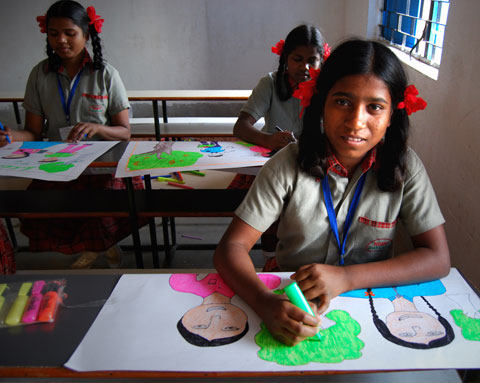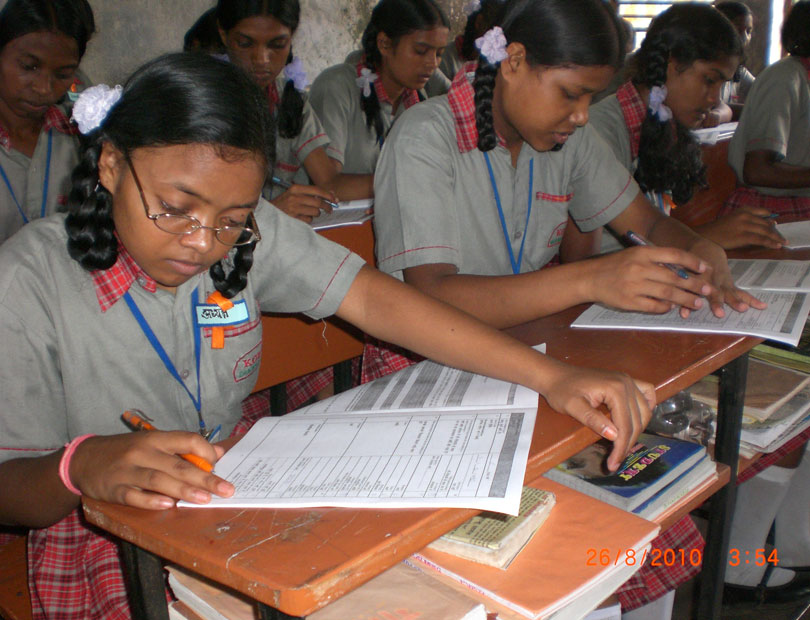Abha is a student of Class X. Last year, her parents fixed her marriage and she stopped attending school. Her Hindi teacher, a Tarang nodal teacher noticed it, and asked other girls of the class the reason of her absence. Two students of the class informed her that Abha is getting married soon. The teacher called Abha’s mother and asked the reason of Abha’s absence from the school. The mother said that Abha will be back in school the next day.
The next day Abha came to the school and during the class, the Nodal Teacher deliberately discussed the Tarang Chapter on ‘Consequences of Early Marriage’. Two students carried out the role play as per the curriculum. The discussion on this chapter compelled Abha to rethink about her marriage. When the Nodal Teachers asked the students that at what age the girls should be married, all the girls in unison said that after attaining the age of 18.
When Abha went back home, she discussed the consequences of early marriage with her parents. Not only that, she also told them about the character of Neha and Sarla from the manual. She said that she doesn’t want to become Neha and make her life a living hell but wanted to become like Sarla who led a comfortable life because she married at the appropriate age. Finally, her parents decided that they will not marry Abha early. They cancelled her marriage and told her to continue her study. Now Abha comes to school proudly. She has realized the importance of the Tarang Program in saving her life from the clutches of early marriage.





